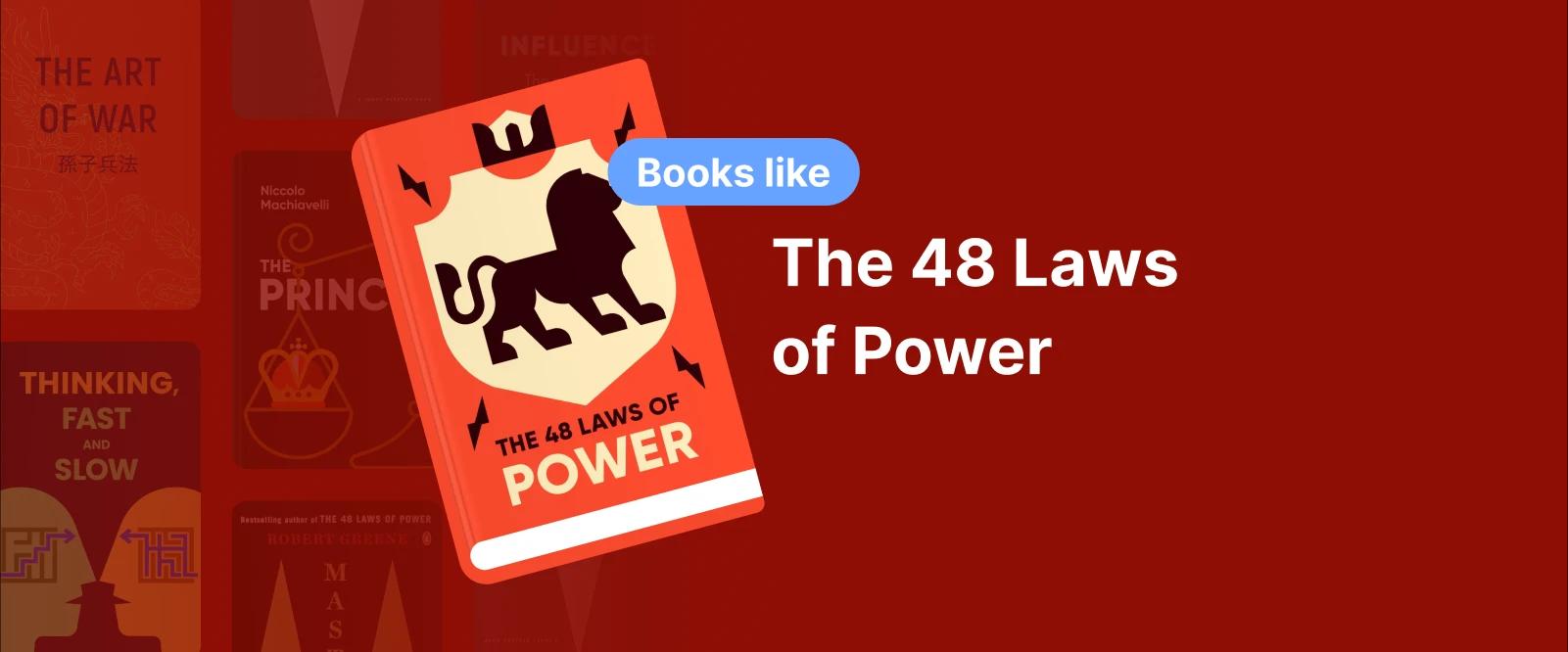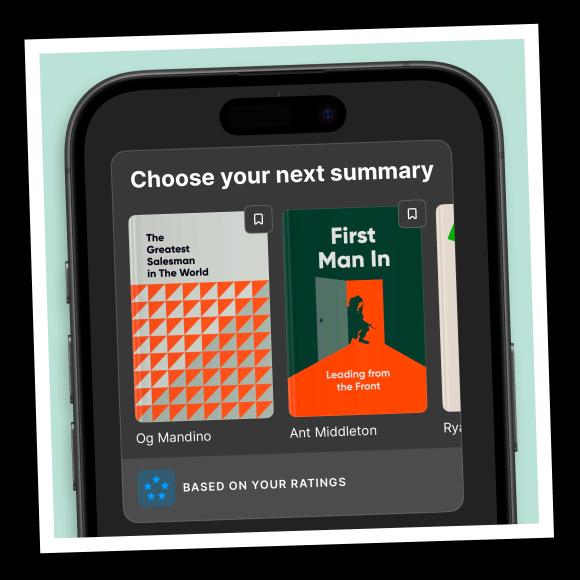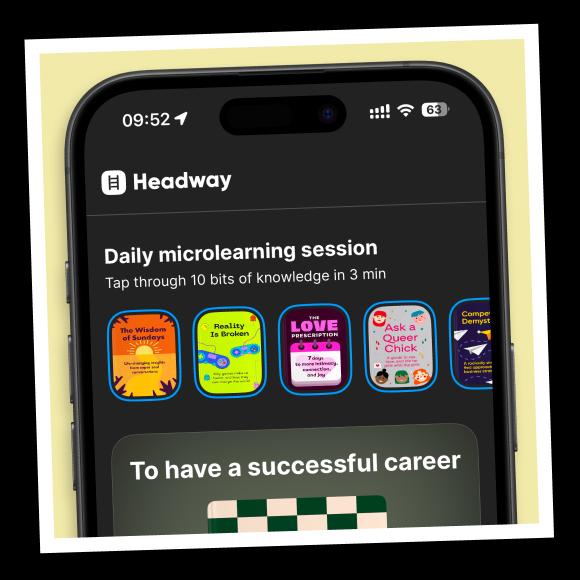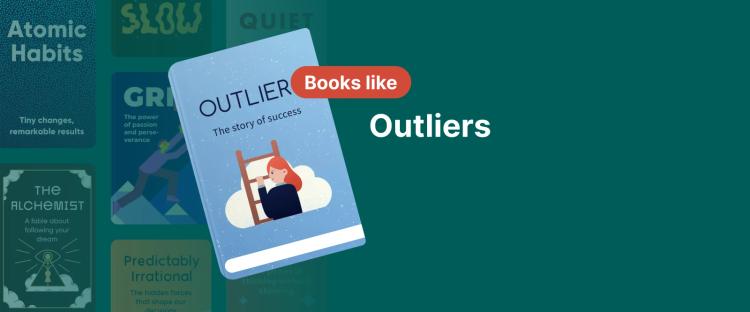American author Robert Greene's 'The 48 Laws of Power' shared the secrets of power, influence, and success with the world. And since its release, it's sold over a million copies and stayed on the New York Times bestseller list, proving that it works.
If you've finished Greene's classic and want more, our curated list of 14 must-read books like 'The 48 Laws of Power' digs deeper into the world of power, influence, and self-improvement. Some come from renowned thinkers and historical figures, while others echo some timeless principles. But all of them challenge how you look at life.
Reading them all takes time. But what if you could level up your knowledge in just 15 minutes a day? The Headway app delivers bite-sized summaries of these books, so you can capture the core insights in no time. Download Headway today and start sharpening your edge!
Quick list: Six books like 'The 48 Laws of Power'
Here's a sneak peek of six books you won't want to miss. These titles teach you to think like a strategist, move with precision, and build real influence in all aspects of your life.
'Mastery' by Robert Greene: Find out how an individual can reach the highest level of skill and excellence in their discipline by practicing and working hard.
'The Prince' by Niccolò Machiavelli: A ruler and leader has an effective strategy for acquiring and using political power based on fear, manipulation, and perception.
'Influence: The Psychology of Persuasion' by Robert B. Cialdini: Learn the psychological principles of persuasion that can increase your effectiveness to influence others.
'The 33 Strategies of War' by Robert Greene: Use military strategies in everyday life and for strategic situations, with a focus on creating and seizing opportunity.
'How to Win Friends and Influence People' by Dale Carnegie: Master the communication that will improve your relationships and even help influence others.
'The Art of War' by Sun Tzu: Discover timeless warfare strategies that emphasize adaptability, intelligence, and patience.
Keep reading to discover the full list of books that can help you dominate the game of life!
📘 Want to master all these strategies? Get Headway for power-packed summaries in 15 minutes each!
14 must-read books like 'The 48 Laws of Power' by Robert Greene
Start digesting these influential books today — here's the full reading list you should definitely check out + real-life examples for you to try implementing this knowledge!
1. 'Mastery' by Robert Greene
Greene breaks down the process of becoming adept at a given field and attaining power through mastery. The path involves these steps:
Identifying natural inclinations
The Ideal Apprenticeship
The creative-active phase
Achieving mastery
Therefore, start by identifying where your interests and strengths naturally overlap.
Greene also discusses an Ideal Apprenticeship, in which creating the richest learning situations possible, at the expense of things like money or status, means enduring degrading and repetitive work, and a measure of suffering, as part of gaining mastery.
How will you turn this into action? Identify your innate strengths and view adversity as a vital component of personal growth if you aspire to become an expert in your field. For instance, to improve your skills, accept a position that challenges you, even if it means earning less money or having less prestige.
📘 Want to fast-track your path to mastery? Try Headway for expert insights on skill-building and growth.
2. 'The Art of War' by Sun Tzu
Can the study of ancient warfare help you navigate the problems you might have today? Next, we're examining strategic principles from Sun Tzu's 'The Art of War.' The takeaways include:
Avoiding direct confrontation
Being adaptable
The use of intelligence and patience
The book starts with explanations of how to avoid direct confrontation. Sun Tzu suggests that one must achieve goals through smart planning, not by participating in the conflict.
Next, the book explores the importance of adaptability, explaining why it's essential to adjust and remain flexible in a world that is constantly evolving. The third key principle, The Use of Intelligence and Patience, teaches that intelligence and patience are crucial for mastering the art of war.
Sun Tzu's strategic thinking actually echoes the principles from 'The 48 Laws of Power.' If you're keen on learning the subtle art of war, this ancient yet timeless masterpiece awaits.
How will you turn this into action? Use these tactics, as they help avoid pointless conflict in your work life and start developing patience. For example, consider methods to outperform a competitor through innovation and strategic alliances, rather than directly competing with them.
3. 'The Prince' by Niccolò Machiavelli
Niccolò Machiavelli's 'The Prince' is another legendary must-read on political power. This must-read delves into the importance of authority and reasons why it must be maintained. The main takeaways include:
The Importance of Being Feared
Managing public perception
The Role of Fortune in Politics
The journey begins with The Importance of Being Feared, where Machiavelli asserts that being feared is more beneficial for a ruler than being loved, as long as the ruler can avoid being hated.
Next, leaders are advised to focus on Managing Public Perception. Machiavelli asserts that rulers should cultivate and project an image of virtue to maintain their political power and, in turn, manage the way others perceive them.
The third key principle is The Role of Fortune in Politics. Machiavelli acknowledges the impact of fortune on politics but believes its unpredictability can be mitigated through strategic planning and adaptability. This is a must-read, especially for Marcus Aurelius enthusiasts, as these two thinkers share some of the ideas.
How will you turn this into action? Pay close attention to how people perceive you in order to carefully manage your public image and effectively utilize your influence. Project authority and confidence to win people over in a business context.
4. 'Influence: The Psychology of Persuasion' by Robert B. Cialdini
Now we jump from politics to psychology — an Amazon bestseller by Robert B. Cialdini's 'Influence: The Psychology of Persuasion.' This book explains mechanisms of persuasion and their role in achieving strategic success.
Cialdini identifies six psychological principles of persuasion:
Reciprocation
Consistency
Social proof
Liking
Authority
Scarcity
Surprisingly, these principles are highly relevant in today's digital age. Listening and avoiding arguments online matters, especially if you want to hold more powerful and productive conversations.
How will you turn this into action? Utilize strategies such as social proof and scarcity in your marketing, or establish reliable communication, to apply Cialdini's ideas and influence decisions. For instance, if you are in charge of a group, ensure your actions align with your statements.
5. 'The 33 Strategies of War' by Robert Greene
Returning to Robert Greene's writings, 'The 33 Strategies of War' discusses how to apply military strategy to everyday situations. This is particularly important for people who want to gain control. Among the primary tactics are:
Establishing a dominant position
Thinking beyond conventional norms
Endurance and timing
Strategic compromise and extreme measures
Mastering self-discipline
Greene emphasizes the strength of combining personal abilities with those of others to change your life and tackle obstacles more effectively. He advises readers to shape circumstances to achieve their goals rather than passively adapting.
Greene then promotes unconventional and creative approaches to problems, encouraging people to think outside the box. Timing and endurance underscore the importance of persevering through prolonged challenges, acting at the right moment, and building on each success to thrive and prosper.
The book also discusses strategic compromise and extreme measures, taking into account the situations in which existential threats require compromise or drastic measures. In the end, developing self-discipline is stressed as a way to keep impulses and emotions under control and improve decision-making in dire circumstances.
How will you turn this into action? Use these tactics to outmaneuver rivals by determining your position and acting at the ideal moment. For instance, in order to stand out and accomplish your goals in your career, don't be afraid to question norms and break conventions.
6. 'How to Win Friends and Influence People' by Dale Carnegie
Arguably, one of the most popular must-reads for any type of busy professional, Dale Carnegie teaches us how to influence people and make friends. Stronger connections can uplift collective power and success, one of the principles described by Carnegie and Greene. Other key principles include:
Taking a genuine interest in others
Effective communication strategies
Avoiding arguments and giving sincere praise
Social intelligence and influence
The journey begins with taking a genuine interest in others, which Carnegie views as fundamental to relationship building.
Next, effective communication strategies include using people's names, smiling, and being a good listener to strengthen connections. Avoiding arguments and giving sincere praise helps to win people over and maintain positive relationships.
Finally, social intelligence and influence guide readers through handling people, making friends, influencing thinking, and leading effectively, resonating with Greene's emphasis on mastering social environments.
📘 Ready to level up your people skills? Try Headway for communication hacks that actually work in real conversations!
How will you turn this into action? By avoiding arguments and giving sincere praise, you can strengthen relationships. For example, to encourage cooperation and inspire your team, practice active listening in work environments, and give others a sense of worth.
7. 'The Laws of Human Nature' by Robert Greene
Yes, it's another fascinating book by Robert Greene — 'The Laws of Human Nature.' This story explores human behavior, self-awareness, and rational thinking strategies. The key takeaways are:
Increasing self-awareness
Recognizing irrational tendencies and biases
Encouraging rationality and empathy
Patience and perspective-taking
The first step — begin developing self-awareness, which Greene underscores as critical to understanding oneself and other people. Second, the opportunities to identify irrational tendencies and biases will help readers identify patterns of behavior that can damage their decisions and relationships.
When you focus on rational thinking and empathy, it's easier for you to understand your own thoughts and consider other people's perspectives. This way, interactions and decisions are made easier. Also, patience and seeing things from different viewpoints teach you to handle life's challenges thoughtfully while growing.
How will you turn this into action? By identifying irrational behavior in others and applying empathy, you can improve your social and professional interactions. To reach a win-win agreement, focus on understanding the other party's underlying concerns and emotions.
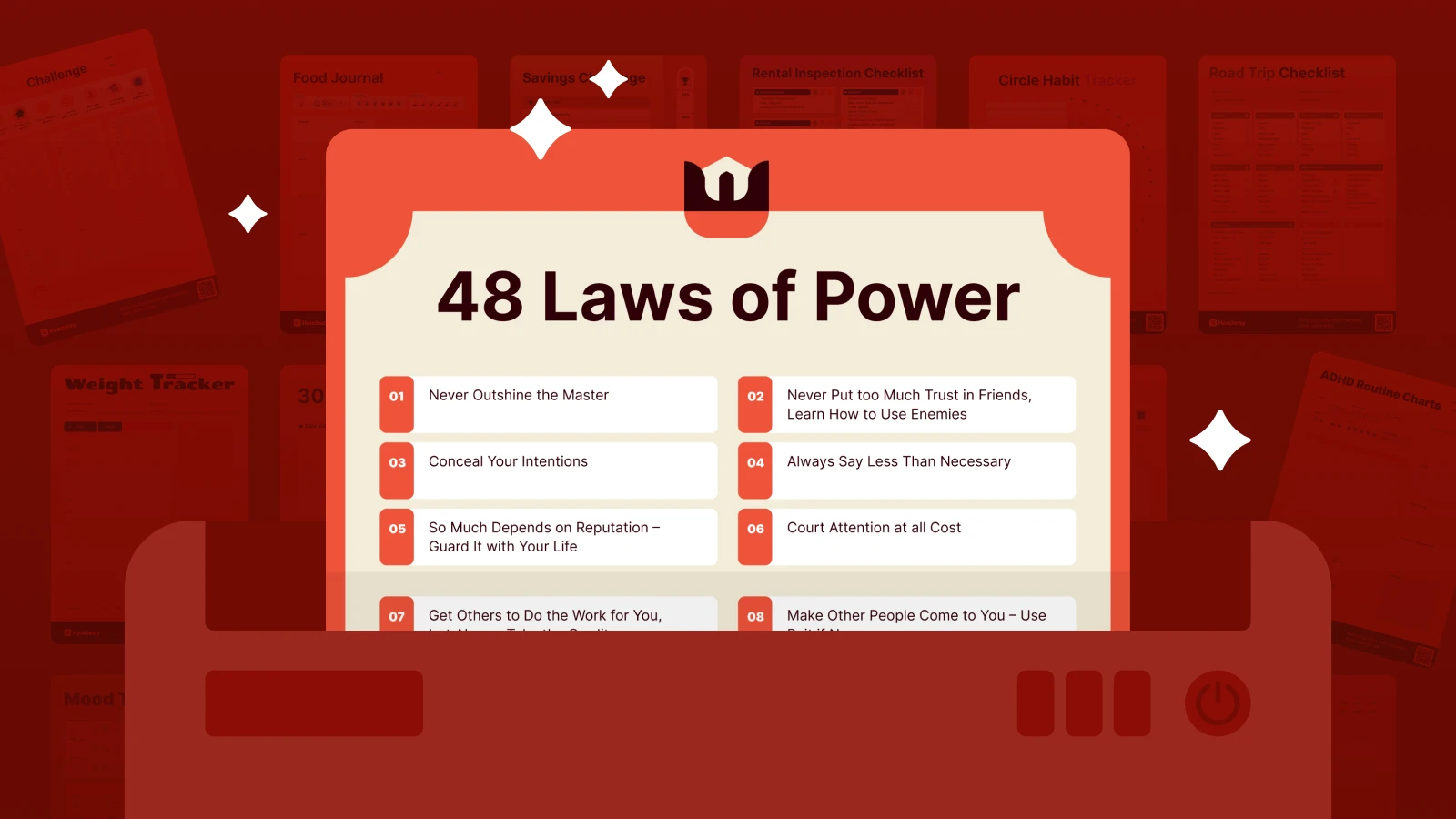
8. 'Thinking, Fast and Slow' by Daniel Kahneman
In 'Thinking, Fast and Slow' by Daniel Kahneman, you learn about the two modes of thinking that help shape decision-making for humans. Four key concepts include:
System 1 thinking (fast, intuitive, emotional)
System 2 thinking (slow, deliberative, logical)
Over-reliance on System 1
The idea of WYSIATI (What You See Is All There Is)
The journey begins with System 1 thinking, which operates automatically and delivers first impressions and quick conclusions. Next, System 2 thinking is slower, more deliberative, and logical, and is activated during complex problem-solving tasks.
Over-reliance on System 1 can lead to judgment errors, such as seeing patterns in randomness or overestimating personal intuitions.
Last but not least, the concept of WYSIATI explains how people often make decisions based only on the information they have, overlooking unknown factors. This can result in an incomplete understanding of situations, making the book essential for anyone looking to improve their decision-making skills.
How will you turn this into action? To prevent biases, be conscious of your quick thinking. For instance, use System 2 thinking to make sure you fully consider all the information before acting when faced with a difficult decision at work.
9. 'The Dictator's Handbook' by Bruce Bueno de Mesquita and Alastair Smith
At first, this book drew attention mainly because of its title. But 'The Dictator's Handbook' by Bruce Bueno de Mesquita and Alastair Smith actually reveals how authoritarian leaders secure and maintain their positions.
The authors argue that such leaders' primary objective is to stay in power, often prioritizing this over the needs of their citizens.
The authors outline five fundamental rules for rulers:
Maintaining the support of key allies (coalition members)
Managing the distribution of resources
Removing threats, even before they appear
Providing rewards for loyalty
Using propaganda strategically
These rules emphasize the distinction between democratic and authoritarian governing. This book is a compelling exploration of political power dynamics with insights into the mechanics of power within political structures.
How will you turn this into action? Use these guidelines to negotiate power relationships in both political and corporate settings. To gain the loyalty of key team members, for instance, maintain strong alliances and strategically offer rewards.
📘 Curious about the hidden rules of power? Download Headway for eye-opening insights into what really moves the world!
10. 'Primal Leadership' by Daniel Goleman, Richard Boyatzis, and Annie McKee
'Primal Leadership' links emotional intelligence to leadership success and effective influence. The emotional intelligence of a leader is important because it informs how leaders act and react to various emotions within their organizations, starting from their own emotions.
By successfully utilizing primal leadership, leaders are able to:
Develop a positive emotional ripple effect
Improve the work environment and team effectiveness
Establish an encouraging emotional climate
Offer empathetic support in challenging work conditions
Support health and productivity
Emotional intelligence isn't only important for dealing with personal or work-related challenges, but also demonstrates how morale can create better outcomes. This text explains the connection between emotional intelligence, leadership, and strategic success.
How will you turn this into action? Develop emotional intelligence to foster a productive workplace that enhances team output. You can inspire your team, raise morale, and boost productivity by identifying and managing your emotions as a leader.
11. 'The 50th Law' by 50 Cent and Robert Greene
'The 50th Law' provides the best way to acquire authority and overcome obstacles is to be fearless. Among the fundamental ideas are:
Adopting a fearless attitude
Using practical experience to inform strategy
Being conscious of one's own advantages and disadvantages
tenacity and resolve
There is a start in being unafraid, which 50 Cent describes as foundational to rising to the challenge and performance. Then, he provides examples that apply to the life lessons learned by each of us in the competitive, hard-knock reality of life (e.g., the music industry).
Recognizing your strengths and weaknesses will help you overcome obstacles and make improved decisions. At the end of the day, resilience and determination demonstrate that courage is the primary force for facing challenges and utilizing power.
How will you turn this into action? Face challenges head-on to overcome uncertainty and fear. Resilience is the ability to remain composed and focused in the face of pressure, whether in business, public speaking, or personal growth.
12. 'The Strategy of Conflict' by Thomas C. Schelling
'The Strategy of Conflict' examines how game theory can be applied to actual situations like negotiations and combat. Among the fundamental ideas are:
Retaliation as a strategic tool
Maintaining credibility through unpredictability
Applying game theory to everyday life
The process begins with using retaliation as a method of strategy. Schelling says the ability to retaliate can be more important than preventing attacks. After that, unpredictability leads to better outcomes; being unpredictable, by keeping your strategies flexible and unclear, can lead to winning conflicts.
In all, applying game theory to everyday life offers new insights into tactics, conflict, and cooperation that are not confined to warfare or negotiating.
How will you turn this into action? To improve your negotiating or conflict-resolution position, be unpredictable and use strategic retaliation. Keep your tactics adaptable and employ unexpected tactics to outsmart rivals.
📘 Want to think three moves ahead? Try Headway for strategic insights that turn everyday conflicts into wins!
13. 'Power: Why Some People Have It and Others Don't' by Jeffrey Pfeffer
'Power: Why Some People Have It and Others Don't' explores power dynamics in organizations and how individuals become powerful. The major points are:
The value of power often outweighs the value of performance
The development of strong connections and a good reputation
The purposeful application of assertive behaviors
The jockeying of power, self-interest, and the dynamics of office politics
It started with a narrative that the idea of power is often more important than performance. As Pfeffer notes that being successful in acquiring influence may matter more for a professional's success than their performance.
Next, building reputational capital and social networks is crucial for increasing influence and visibility within an organization. Using assertive behaviors strategically enables individuals to position and elevate themselves in certain contexts.
Navigating organizational politics and self-interest emphasizes the need to understand political dynamics, the strategies others use to gain power, and how public-serving actions often align with personal gain. Mastering interpersonal and personal relationships is critical to achieving these goals.
How will you turn this into action? Understand that establishing strategic relationships is just as important to power building as performance. For instance, use office politics to advance your career path and establish connections with influential people.
14. 'Leadership' by James MacGregor Burns
'Leadership' explores a relatively new practice: the concept of transformative leadership. It’s supposed to create a change and fulfill followers' motives. The key concepts include:
Transformative vs. transactional leadership
Focusing on mutual values and goals
Leadership beyond formal positions
Influence and persuading others
The discussion on leadership starts with an examination of transformational and transactional leadership. Burns describes transformational leaders who are able to create a change, with the intent of attracting and transforming people into groups that pursue a common purpose vs transactional leaders who are focused on a basic exchange.
The discussion then shifts to aligning the goals of leaders with followers, demonstrating that when people work toward a common goal, meaningful outcomes will occur.
Leadership beyond formal positions highlights that influence is not limited to political leaders; it extends to parents, teachers, supervisors, and others who establish common purposes with those they lead.
Influencing and persuading others shows that leadership can be exercised through various styles, using the ability to guide and motivate even without formal authority.
How will you turn this into action? By inspiring your team to achieve extraordinary results, you can transition from transactional to transformational leadership. To bring everyone together and promote group action toward your objectives, concentrate on the common values and vision.
📘 Ready to lead with real impact? Grow in leadership wisdom with Headway!
Make Headway your daily strategic tool for growth!
We've explored power, strategy, and human behavior through 14 influential books. Each one teaches lessons on influence, decision-making, and handling social dynamics — reflecting 'The 48 Laws of Power' in its own way.
Headway makes it easy to apply these lessons without reading every book. The app turns the key ideas from world-changing nonfiction into bite-sized, actionable summaries. Listen on the go (like an audiobook), read in minutes, and track your growth in a beautifully designed app trusted by over 50 million users!
Headway helps you turn big ideas into daily habits. Personalized summaries, audio versions, and daily recommendations make it simple to learn faster, sharpen your thinking, and put insights into action immediately.
Download Headway to learn faster, act smarter, and grow every single day!
Frequently asked questions about books like 'The 48 Laws of Power'
What's the most powerful law of the 48 Laws of Power?
Many readers see Law 1 as the most powerful law: "Never Outshine the Master." This law emphasizes the importance of 'subtlety' in the form of 'keeping out of the glare from above you while you work to create influence.' Used wisely, it helps create relationships, build trust, and work on a more strategic angle in different situations without conflict.
Which book is better, 'Atomic Habits' or 'The 48 Laws of Power'?
It depends on your goal. 'Atomic Habits' is ideal for practical, day-to-day self-improvement, focusing on building routines and long-term personal growth. 'The 48 Laws of Power' is a self-help book for understanding influence, strategy, and social dynamics. If you want actionable behavior change, choose 'Atomic Habits.' For mastering power and strategy, pick Greene's classic.
What's the 50th Law of Power?
The 50th Law, co-authored by Robert Greene and 50 Cent, is about success that focuses on fearlessness. It discusses how to take risks, engage challenges directly, and use self-awareness. Based on 50 Cent's experiences, this book is a mix of 'streets' experiences and strategic thinking. It shows how taking risks and adaptability lead to lasting results.
What are some criticisms of the 48 Laws book?
Some critics have claimed that 'The 48 Laws of Power' prioritizes self-interest, which they perceive as manipulative and ethically cynical. Also, some people think the book encourages exploitation and betrayal of others. Yet, many readers have found the work useful. It covers complex matters like human nature and serves as a study guide for understanding social behavior.
What's the best quote from 'The 48 Laws of Power'?
The quote 'Keep your friends for friendship, but work with the skilled and powerful' is among the best. It is frequently cited, as it emphasizes the value of strategic alliances and shows that connections are useful for accomplishing objectives. Additional famous quotes from 'The 48 Laws of Power' can be found on the Headway blog.

